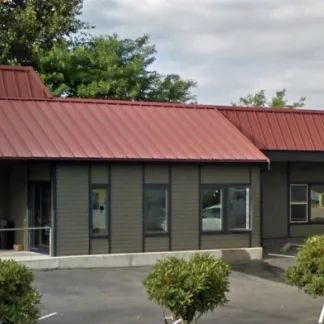Follman Counseling Agency - Treatment & Recovery Center
Follman Counseling Agency – Treatment & Recovery Center is a private rehab l...
Skagit County Crisis Center is a Residential Detox rehab located in Burlington, WA. Skagit County Crisis Center specializes in the treatment of Substance Addiction and Co-Occuring Disorders.
Contact us for more information: (360) 757-7738

Connect with Skagit County Crisis Center by calling their admissions team directly.
(360) 757-7738 Website Get DirectionsThe Substance Abuse and Mental Health Services Administration (SAMHSA) is a branch of the U.S. Department of Health and Human Services. Established in 1992 by congress, SAMHSA's mission is to reduce the impact of substance abuse and mental illness on American's communities.
SAMHSA Listed: Yes
State Licenses are permits issued by government agencies that allow rehab organizations to conduct business legally within a certain geographical area. Typically, the kind of program a rehab facility offers, along with its physical location, determines which licenses are required to operate legally.
State License: Washington
Group therapy is any therapeutic work that happens in a group (not one-on-one). There are a number of different group therapy modalities, including support groups, experiential therapy, psycho-education, and more. Group therapy involves treatment as well as processing interaction between group members.
Trauma therapy addresses traumatic incidents from a client's past that are likely affecting their present-day experience. Trauma is often one of the primary triggers and potential causes of addiction, and can stem from child sexual abuse, domestic violence, having a parent with a mental illness, losing one or both parents at a young age, teenage or adult sexual assault, or any number of other factors. The purpose of trauma therapy is to allow a patient to process trauma and move through and past it, with the help of trained and compassionate mental health professionals.
Trauma therapy addresses traumatic incidents from a client's past that are likely affecting their present-day experience. Trauma is often one of the primary triggers and potential causes of addiction, and can stem from child sexual abuse, domestic violence, having a parent with a mental illness, losing one or both parents at a young age, teenage or adult sexual assault, or any number of other factors. The purpose of trauma therapy is to allow a patient to process trauma and move through and past it, with the help of trained and compassionate mental health professionals.
Follman Counseling Agency – Treatment & Recovery Center is a private rehab l...
Sunrise Community Mental Health is a private rehab located in Mount Vernon, Wash...
Skagit Regional Health Mount Vernon – Behavioral Health is a public rehab locate...
VA Puget Sound Health Care System - Mount Vernon Community Based Outpatient Clin...